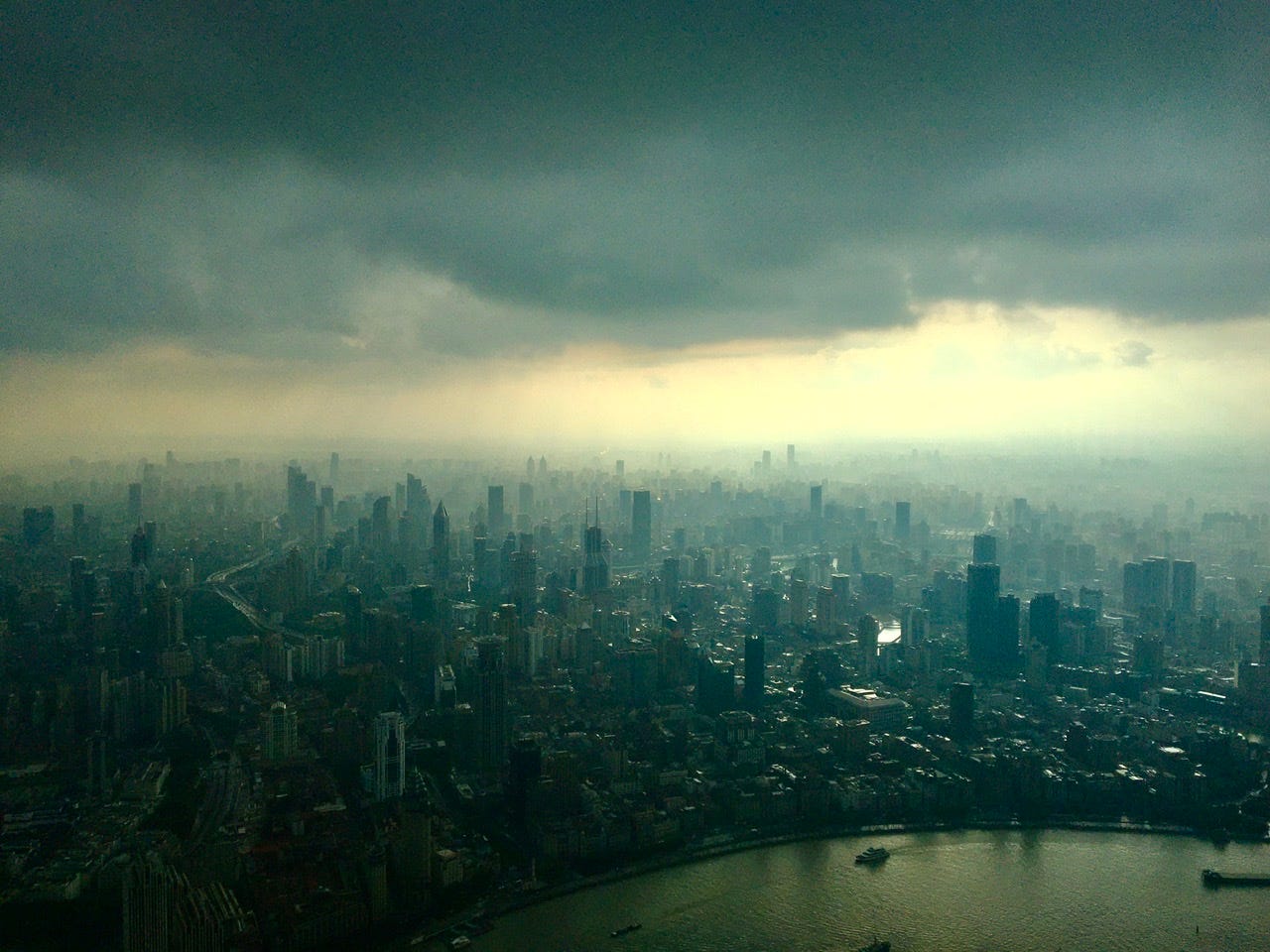In the introduction to my guidebook, published in 2018, it says that ‘it can be frustrating trying to catch a glimpse of the real China, as once-magnificent destinations drown in miles of commercial sprawl.’ Which I found odd: if the commercial sprawl is what’s really there, wouldn’t that make it the real China? What does it mean to be real? Is the place I come from real? And if China is no longer the real China, what exactly has it become?
Since July, Numb at the Lodge has been in China, investigating these questions and more. Next week’s will be the final edition. Paid subscribers can access our full brain-melting tourist odyssey across the past and future of Chinas real and imagined. This is a travel blog now.
Today I’m writing from Shanghai, where China ends.
I came here with a plan: in Shanghai, I would try to meet Nick Land. For those that aren’t aware of him, Nick Land is a British philosopher formerly associated with the Cybernetic Culture Research Unit at Warwick University, a militantly weird formation that kept insisting it did not and would never exist. CCRU was interested in the inorganic, the incoming of the outside, digital feminisms, and Deleuze and Guatrari horribly inseminated with Lovecraft; in particular, it liked attaching the prefix ‘hyper-’ to things. During his CCRU days in the 1990s and 2000s, Land took a lot of speed, took his students out to jungle raves, and wrote sentences like ‘Cybergothic slides K-space upon an axis of dehumanisation, from disintegrating psychology to techno-cosmogony, from ideality to matter/matrix at zero intensity, from a mental ‘non-space,’ ‘non-place,’ or ‘notional void’ that results intelligibly from human history to the convergent spatium from which futuralisation had always surreptitiously proceeded: print cryogenises, but hypermedia melts things together, disontologising the person through schizo tech-disassembly, disintegrated convergence.’ Some people profess to find this impenetrable; I happen to think it’s great. Then, eventually, Land quit amphetamines, quit the academy, moved to Shanghai, and started writing internet essays about Hitler and Trayvon Martin and how the welfare state is subsidising an eventual racial apocalypse. He also wrote a guidebook to the 2010 Shanghai World Expo. This is, you have to admit, an interesting trajectory. The conventional wisdom is that Land simply ‘went mad,’ which feels like a dangerously undertheorised way of putting things. Another view is that he was just following his philosophy to its logical conclusion, which was always fascism; all that 90s cyber stuff is not just embarrassing but evil, and should probably be burned. The most interesting interpretation holds that he did go mad, but only because there’s a thought-demon encoded into Marx’s notes for Volume III of Capital, a demon made entirely out of inferences that ended up killing Engels and driving a wedge between Bernstein and Kautsky, and which still disintegrates the mind of anyone who truly understands the law of the tendency of the rate of profit to fall. But I wanted to find out for myself, so I had some mutual acquaintances reach out to the man. In response I received a large table of kabbalistic computations followed by a set of coordinates. The set of coordinates marked the exact location of my home in London. That felt like a pretty unambiguous threat. I left things there.
I decided that it didn’t matter whether or not I actually met Land, because I could simply hypermeet him instead. I would, after all, be in his city. Paris belongs to Walter Benjamin, California belongs to Jean Baudrillard; in my mind, Shanghai had already started assuming Landian dimensions. The black machine-hive in which capital assembles itself out of the materials of its enemy. Where China’s opening-up is at its most open: total laceration, the entire country unfolding itself into a hypercube to welcome the uncertain energetic field of the Outside. Where in the final phases of the pandemic, the people ossified into their homes by the dually intercontaminating anthropogenic viruses of SARS-CoV-2 and douyin digital infoflow exhausted all modes of electronic communication and stuck their heads out the windows to collectively scream fury and terror without words: screaming, in one of the most technologically advanced cities on the planet, screaming like savages, like animals, the unmodulated six-hundred-million-year scream of metazoan biolife ripped between the jaws of virionic artificial underlife and silicoadministrative artificial overlife in the mastication zone of the future we call xeno-China-X.
So I was very surprised to step off the train and discover that the place is nothing like that at all. Chongqing was a cyberpunk xenozone; Shanghai is essentially just a nice northern European city—I think it’s somewhere in the Netherlands, which would explain why everyone speaks such good English—that has mysteriously come under the administration of the CPC.


